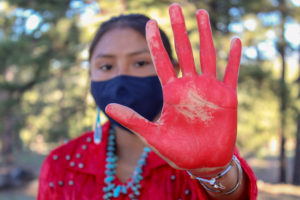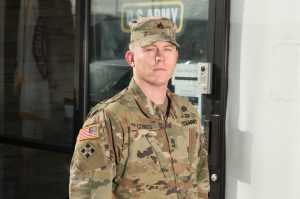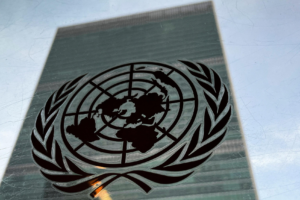Luis Miranda, the father of Lin-Manuel, on the best way to amass political power in the lead-up to the presidential election
When Lin-Manuel Miranda started writing a musical about an ambitious, irresistible Caribbean-born striver who takes the New York political world by storm, he didn’t have to look far for a real-life model of relentlessness. “That’s Luis Miranda as much as it is Alexander Hamilton,” he explains in Siempre, Luis, a new documentary about his father’s journey from a Puerto Rican hill town to the centers of Democratic Party leadership on the mainland. “When I was playing Hamilton, I was just playing my father.”
On a Zoom call last week, the elder Miranda laughed off the suggestion that he had inspired Hamilton—“My son is in the arts; he’s a little dramatic”—but the director John James’s debut feature, now on HBO, makes an energetic case for the 66-year-old Miranda as the Founding Father’s indefatigable counterpart. Born in Vega Alta, Puerto Rico, Miranda left the island when he was 18 on a scholarship to NYU, where he quickly became a student activist pushing for more diversity in the faculty. He later became a community activist trying to strengthen schools in Washington Heights, and then an adviser on Hispanic affairs to former Mayor Ed Koch, who relished his brashness. (“I’m not the easiest person to deal with, because I’m passionate about what I want to promote,” Miranda told me. “I never hear ‘No’; I hear that I need to figure out another way to change this person’s mind.”)
In 1990, Miranda founded the nonprofit Hispanic Federation, focused on health and social services for immigrant communities. By the end of the decade, he had also started a consulting group that helped political candidates address the concerns of Latino voters. As his clients, Chuck Schumer, Hillary Clinton, and Kirsten Gillibrand were elected senators from New York. When we see Clinton greet him in the documentary, it’s with words that closely echo Aaron Burr’s phrase for Hamilton: “You have been going nonstop!” And in addition to bringing Hamilton to Puerto Rico last year, Miranda chairs a program to develop Latino audiences on Broadway.
Miranda’s favorite movie is The Unsinkable Molly Brown, a fantasy about a small-town kid whose drive propels her to success. (“He was raised on a steady diet of American bootstrap narratives,” Lin-Manuel chuckles in the documentary.) Yet while Miranda’s own work schedule, with about five hours of sleep a night, subscribes to the get-a-lot-further-by-working-a-lot-harder ethos, his political priorities recognize the need to help people whose circumstances might constrain their drive.
We spoke about his nonstop pace, Puerto Rican–diaspora politics, the protests that challenged Hamilton in San Juan, and what it will take for Democrats to win in November.
This interview has been edited for length and clarity.
Daniel Pollack-Pelzner: What gave you the drive you recognized in The Unsinkable Molly Brown?
Luis Miranda: That’s the way I am wired. I live with this motto: Is there anything else I need to do before I go to bed? I do an inventory of everything I set up as goals for the day, and usually I get out of bed again and answer that one more email and watch that last candidate video that I needed to approve. I believe that everybody is the same way, and if they’re not, they’d better change. There’s just too much shit to do! Sometimes I get to Lin-Manuel’s, and I jump into action. He says: [slowly] “Dad, how was your day?” I say: “It will be better when we handle this situation!”
Pollack-Pelzner: When did that drive become harnessed to politics for you?
Miranda: When I started getting involved in New York politics, it was NYU student politics. It was: How do you increase the number of minority students in this PhD program? How do you hire faculty and supervisors who are more diverse? Then I realized I was in a community that had lots of needs. How do I get involved with others, with institutions fighting for better schools, fighting the overcrowding of schools in immigrant neighborhoods? I saw government as a way to resolve those problems. Then I went into the nonprofit sector. You continue to figure out how to accomplish the goal of social justice. Partisan politics is one more way of doing that, by electing people who will better represent you.
Pollack-Pelzner: When you worked for Mayor Ed Koch, and then on the Senate campaigns for Chuck Schumer and Hillary Clinton, how did you connect them with Latino voters?
Miranda: First you need to assist your candidate in understanding that you exist. There’s a low-level bar to realizing that you need to speak about the issues that matter to that group. You need to speak to them in two languages. It cannot only be in English, because 50 percent of the population is not getting everything you’re doing. There are entire media and social networks that many people never come in contact with. Mega 97.9 FM, a radio station, [has] had the most listenership of all radio stations in New York City, and English speakers never tune in. But so many of us tune in, we’ve made it the No. 1 station. It’s about showing people that you have enough respect to speak that language and go places in their community. You have to show you care about what they think.
[Read: The mixed reception of ‘Hamilton’ in Puerto Rico]
Take the example of Puerto Rico. Elected officials have many demands on their plate. You’re asking them to place much higher on their agenda the needs of people who cannot even vote for them. I know that was a tough ask. In 2017 [after Hurricane Maria], we kept asking. We didn’t just want them to show up to Puerto Rico with water and food. We were asking for federal aid, because the official assessment said Puerto Rico needed $90 billion to get to where it was before Hurricane Maria. Some people said yes right away. Some didn’t call you back, so you called them back. You can create enough collective pressure for people who didn’t join immediately, because there’s a bandwagon and it’s to their advantage. I try to create the context for people to join a movement.
Pollack-Pelzner: How did Hurricane Maria help to unite Puerto Ricans who are part of the diaspora with Puerto Ricans on the island?
Miranda: I grew up hearing from peers on the island that working-class people went to New York and created barrios. If you were wealthy, you sent your kids to the U.S., but you didn’t move to the U.S. When I came to New York, I was disabused of that idea. In fact, the most entrepreneurial Puerto Ricans left the island. If you can pack up your suitcase, go to a place where they don’t speak your language, where it’s fucking cold six months of the year, to seek a new fortune for your family—you’re built of something good. All of a sudden, I’m part of the diaspora. If Puerto Ricans on the island learned something after Hurricane Maria, it’s that we in the U.S. [mainland] will always scream, “I’m here to help you,” and we’ll be first in line. FEMA wasn’t there; the federal government wasn’t there; but we were there the moment they needed us. It united us, because we’re diverse; we have different views on Puerto Rico’s final status.
Pollack-Pelzner: When Lin-Manuel visited the University of Puerto Rico after the hurricane in 2017 to announce that he was bringing Hamilton to your alma mater, student protesters took the stage to denounce him as a traitor, because he had supported a debt-relief plan that imposed harsh austerity measures on the university. How did you feel when the protesters appeared?
Miranda: It was one of those moments in your life that you replay a thousand times. It happened in a second. The first thing in my mind: That’s my son on that stage. Is he safe? I’m not worried about his ego. I’m worried about physical safety. On the other hand, I’m worried about those kids who have the balls and the ovaries to jump on stage, knowing that 99.9 percent of the people there were hating what they were doing. But they saw it as an important stage to show Puerto Rico and the world what austerity measures were causing Puerto Rico. I’m thinking: That was me at 18. Why shouldn’t they have the moment of fame, and tell the world that Puerto Rico is going through this? We’re bringing Hamilton to put a spotlight on Puerto Rico. This is part of what Puerto Rico is. Then security comes and says, “Do we take them offstage?” I say, “No, let them be.” Then I say, “Okay, you’ve had your moment. Now the world will know that one of the biggest Puerto Rican stars was picketed when he’s bringing good news. Now you’ve made your point, and now it’s time to go.” Then I jump on stage and say, “Can you let my son speak?” They scream and insult me. I have been insulted many times; one more insult not going to kill me. They leave peacefully, and everyone got their point across.
Something you learn when you’re part of the diaspora, because you have to deal with such a more diverse society, is to calibrate. You have to figure out—when do you strike, when do you speak, when do you need a nuclear bomb? The response ought not to be the same for every situation. In Puerto Rico, we’ve had 500 years of colonialism—first from Spain, then since 1898 from the U.S. We’ve had a hurricane that destroyed the island, and little help from the federal government, just insults. So you always feel like they’re after you. A little thing is perceived as a threat. And a big thing—not getting billions of dollars that were approved for you—is another threat. And it all feels the same, because your heart feels the same way: This is another time that someone is stepping on me. You don’t let that feeling filter through your head, and then you articulate a response that is appropriate to that objective reality.
Pollack-Pelzner: Have you ever given that kind of emotional response?
Miranda: All the time! I am fortunate that I have a wife who is very even-keeled and helps me calibrate my emotional responses. I’m fortunate that I have kids who help me. Last night, at 1:39 a.m., my nephew sent me a text: “Trump has COVID-19.” I saw the text and decided, This is not worth waking up. At 6:40 a.m., Lin-Manuel texted me: “Be measured about what you say about Trump on Twitter.” I’m like, My kids don’t think I have any control? I have said outrageous things before. My heart speaks, and I don’t filter through the head. This election, it’s all about 3 to 4 percent of the electorate that is truly undecided. I’m keenly aware as a political consultant that you have to be careful not to create such cognitive dissonance that you push them away forever. If they’re undecided, I don’t think they’ll vote for Trump. But you could give them ammunition to vote for Biden, or you could push them to stay home. So I’m aware of everything that I need to do to remove this evil.
Pollack-Pelzner: What are your priorities as a political consultant for November?
Miranda: We need to reassure everyone that we’re going to take care of everyone. It doesn’t matter if you were with Trump. I truly believe that most people are not racist. I believe change can happen little by little. This guy started his election coming down from his palace and saying Mexicans are rapists. My wife is half-Mexican, and she’s a good person, you ass! You have to put that anger away to assure his supporters that they’ll be fine. You could hear that they were ashamed of Trump at the debate, but they forgave him, because they were invested in him. We have to reassure those people that we will govern for everybody. At the end of the day, that’s what the democratic experiment is. You have to govern for the good of the many.




